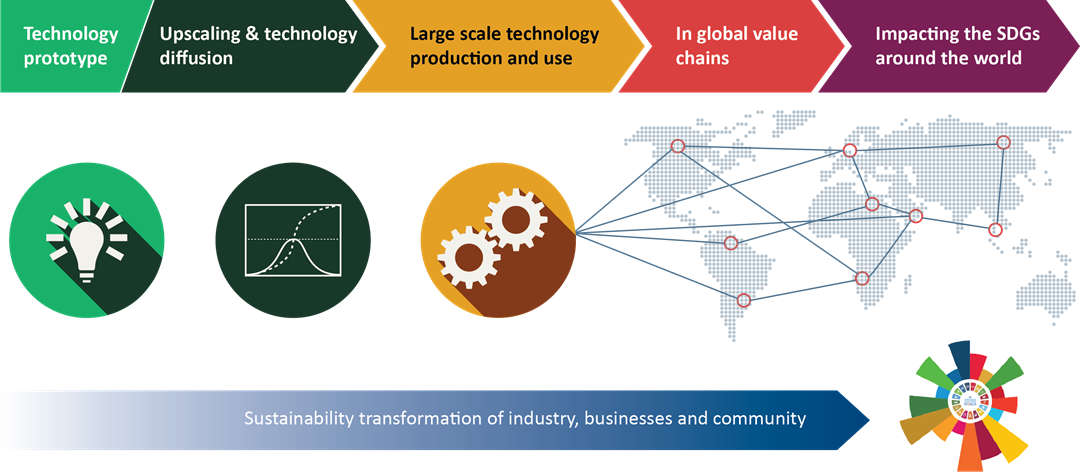Our approach is modelling the natural steps that a new technology will follow from being invented to being fully deployed in the market.
We are combining technology upscaling and market uptake simulations, including inherent uncertainties, with modelling how the technology and also climate policies will change the workings of global value chains. We consider that the technologies can change upstream and downstream value chains and that impacts on the SDG targets can occur anywhere in the value chain. Our system are global value chains including all indirect production and trade relations.
We create novel and comprehensive methodology that bring together the technology development process, resulting technological change and identify, and climate and environmental policies. We take the systems perspective on global value chains, analysing subsequent impacts that these have on long-term sustainability as measured by the 17 United Nations Sustainable Development Goals (SDG) towards 2030.

We link economics with ecology and socio-technical analysis to quantitatively and qualitatively assess impacts on SDG targets of the changes in global value chains. The interlinkage of the global economy calls for a variety of modelling approaches to properly capture the interactions in global value chains. We use a variety of methods, like Input-output (IO) combined with global trade analysis, value chains analyses, material flow analyses.
Our analyses will foster and contribute to the three principles of the SDGs: 'Universiality', the goals apply to everyone; everyone needs to be working toward them (all businesses, industry, public sector and research projects), and no one will be left behind; 'Integration', all goals are interconnected, we cannot just select one, we must achieve all; 'Transformation', achieving these goals will require big and fundamental changes in how we live on earth.
